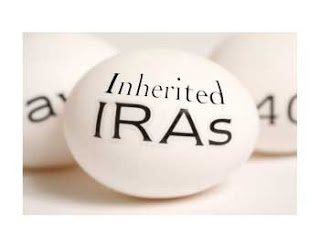Generally, when dealing with an IRS tax debt problem, a taxpayer has four options: (1) pay the amount owing in full; (2) pay the amount over time pursuant to an installment agreement; (3) file an offer in compromise; or (4) file bankruptcy (presuming the tax liability is for income taxes and it is old enough to qualify for discharge. A new ruling out of the Federal District Court for the Northern California District over-ruling a Bankruptcy Court ruling is throwing a new wrinkle into the discharge of an income tax liability in bankruptcy.
The general rules for an income tax to be dischargeable in bankruptcy are that a return has been filed prior to the petition in bankruptcy being filed and (1) that the tax has been owing for three years on a timely filed return; (2) the return was filed at least two years prior to filing the petition in bankruptcy with respect to a late filed return, after taking into consideration the first rule; and (3) the tax has been assessed for at least 240 days on an audit assessment taking into consideration the first two rules.
In re Martin Smith, Debtor, 2014-1 U.S.T.C. ¶50,274 (Apr. 29, 2014), the Federal District Court for the Northern California determined that a taxpayer’s late filed return did not qualify as a return for purposes of discharge and the exceptions found in 11 U.S.C. §523 caused a taxpayer’s tax liability to be excepted from discharge. In this case, Smith failed to timely file his 2001 Form 1040 for income tax purposes. In 2006, the IRS assessed against Smith a tax liability preparing a return for him under their Substitute for Return (“SFR”) process and began proceedings to collect the assessed tax. In 2009, Smith prepared and filed his 2001 income tax return reporting more tax owing than the IRS determined to be owing under its SFR assessment. In 2011, Smith filed bankruptcy and the Bankruptcy Court issued an order of discharge as the late filed return had been filed more than two years prior to the petition in bankruptcy being filed.
In rendering its decision, the Court In re Martin stated:
“Where, as here, the taxpayer and bankruptcy debtor fails to comply with self-assessment and payment of tax obligations until years after the IRS has initiated action, created a substitute return, assessed and begun collection proceedings, the Court simply cannot find his conduct to be “an honest and reasonable attempt to comply with the tax law.” This approach does not mean, as Debtor argues, that the “honest and reasonable attempt” factor creates a per se rule barring taxpayers from filing returns once the IRS has created a substitute for return. To the contrary, this prong of the test is meant to consider each case on its particular facts, an approach which necessarily precludes a per se determination. In sum, Debtor’s belated Form 1040 for Tax Year 2001 does not meet the definition of “return” under established tax law. It follows that the tax liability assessed by the IRS for Tax Year 2001 is a “tax…with respect to which a return…was not filed or given,” and is not dischargeable in bankruptcy pursuant to Section 523(a)(1)(B)i).”
This case gives greater weight to the recommendation to always file a tax return timely, even if you do not have the money to pay the tax that is owed. In addition to extending the statute of limitations for collection when you do not timely file, you can also be setting yourself up for the subject income taxes not being dischargeable in bankruptcy. Although it is presumed that this ruling will be appealed to the 9th Circuit Court of Appeals and that decision will be 1-2 years off, this now represents the law in our area and can present a problem for a taxpayer with returns that have not been filed timely and an SFR is present.
If you are a taxpayer that has not filed a tax return timely and the IRS has issued an SFR, this ruling does not create a per se rule against a future bankruptcy filing by you. In this situation, you should still file your return, and then make arrangements to start paying on that tax liability and pay as much as you can afford. Depending on what happens with this ruling, paying on the tax liability could position the subject taxes to being eligible for discharge if the taxpayer makes an honest attempt to pay the tax and comply with the tax laws.
If you find yourself with an outstanding tax liability, you should consult with a local tax attorney that is knowledgeable in the tax laws and can properly advise you. Be careful with high pressure sales pitches by people on the phone that make promises that they can resolve your tax debts for pennies on the dollar without fully understanding your financial status.




